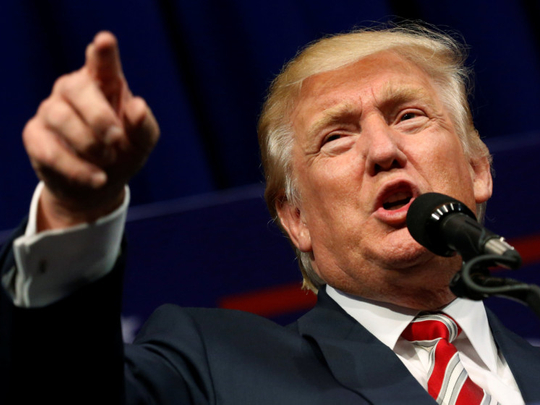
Earlier this year, Donald Trump, the Republican presidential candidate in the United States, appropriated Luciano Pavarotti’s iconic rendition of the ‘Turandot aria Nessun Dorma’, or ‘none shall sleep’, on the campaign trail. This wasn’t entirely surprising; the final lyric is ‘Vincer” — ‘I will win’ — a Trumpian declaration if there ever was one. This pushed Pavarotti’s family to join a list of popular musicians from Adele to R.E.M.’s Mike Mills in demanding that Trump cease playing their music at his odious campaign events. Specifically, the Pavarotti family denounced the Republican nominee’s call for a temporary ban on Muslim immigration as at odds with Pavarotti’s work, before his death in 2007, on behalf of refugees as a United Nations Messenger of Peace.
They’re not the only ones who wish Trump would desist. Classically trained musician Steven Krage wrote: “I am moved to tears because this music, which is my very life’s blood, is being used to bolster the image of a monster. He has defiled the sanctity of art, as he has defiled the rights of women, minorities and the disabled. The fact that this aria could be playing while Trump ridiculed a handicapped reporter with a nerve condition or telling another to ‘go back to Telemundo!’ is almost too much for me to bear.” Though he cited a Slate piece that explains how ‘Turandot’ and Puccini’s later work have fascist undertones, and that, as Brian Wise notes, playing it at Trump’s rallies “arouses grand emotions over rationality”, Krage insists that “it’s time for the opera community, and the artistic community in general, to speak out as much as we can about Trump glomming onto our life’s work and using it for his smear campaign”.
But outrage from the opera world over Trump may be driven more by recognition of the uncomfortable fact that Trump would fit right in as a character in many of the grand works of the genre.
Opera moves us with its combination of parable and sentimentality wrought from music, heightened emotion and narrative exaggeration — it is, in many cases (if you’ll forgive the anachronistic analogy) the soap opera of its time. It can also inspire and impress with lavish sets and vocal pyrotechnics. Even the often luxurious seating, not to mention those in the seats, can offer visual pleasure, an opulent escape from the everyday. And Trump is the political figure who most resembles all these things. Read any review of his latest faux-roque hotel property, with its $18,000 (Dh66,204)-per-night suites, lavish amenities and “‘Phantom of the Opera’-style chandeliers” and the word that comes to mind right after “gross” is, well, “operatic”.
Trump is a charismatic villain who wields flourishes that almost feel like they’re from another era: Bragging to tabloid reporters via a made-up spokesman; building gaudy resorts that are seemingly held together by his all-caps surname (which, itself, is an aggressive verb) emblazoned on their facades; the patriarch of a family of adult children both devoted to him and seemingly unable to move out of his ultimately toxic shadow. His brand and arrogant swagger combine in an extravagant pantomime, drawing in his followers and ushering them past his many business failures.
His life story is the stuff of librettos: Scion of a commercially ruthless grandfather and overbearing father; a tutelage at the feet of unsavoury characters; thorny marriages to glamorous women, now, a quest for power. As in ‘Nessun Dorma’, Trump has had his eye on victory at all costs. In some ways, that win has seemed, throughout this campaign, like his only goal, as if he were involved in a meta reality show. He wants, as Seth Grossman writes, “to receive a rose, to be president”. And the quest, as in ‘Turandot’, has been volatile, with violence at his campaign rallies and even a call by one Trump supporter, himself an elected official, that Democratic presidential nominee Hillary Clinton be “shot for treason”.
To be sure, music can convey dread, not just delight, and I wouldn’t be the one, like Krage, to argue for the sanctity of art. Yet, any association with Trump sullies the loftier aspirations of opera and its exponents, like composer Kurt Weill, who wrote music to confront contemporary ills. Or, much earlier, Mozart, who, in ‘Don Giovanni’, challenged the social order of his time. Opera has the capacity to use grandiosity and sentimentality to reveal universal truths. Trump, on the other hand, employs them to obscure truth. He can exclaim “Vincer!” as many times as he wants, but it won’t conceal the truth that the tragedy and menace he’s brought to the political sphere mean one thing: ‘Perderemo’ — if he wins, we all surely lose.
— Washington Post
Lily Hirsch is a musicologist and the author of books including A Jewish Orchestra in Nazi Germany: Musical Politics and the Berlin Jewish Culture League and Music in American Crime Prevention and Punishment








